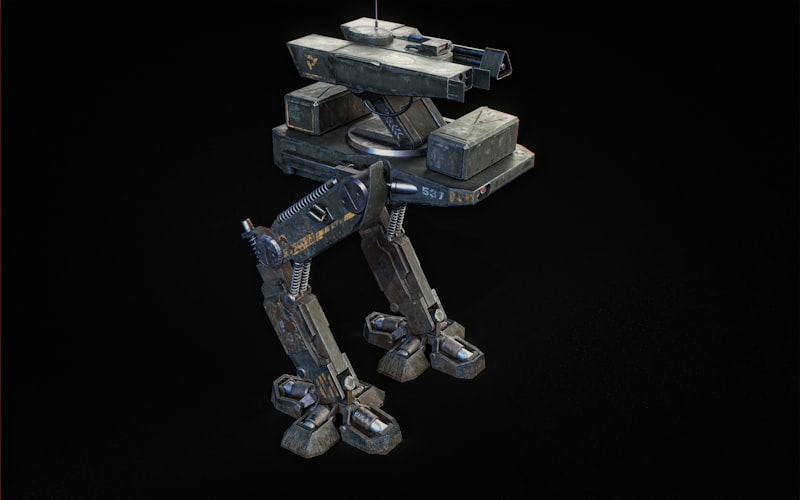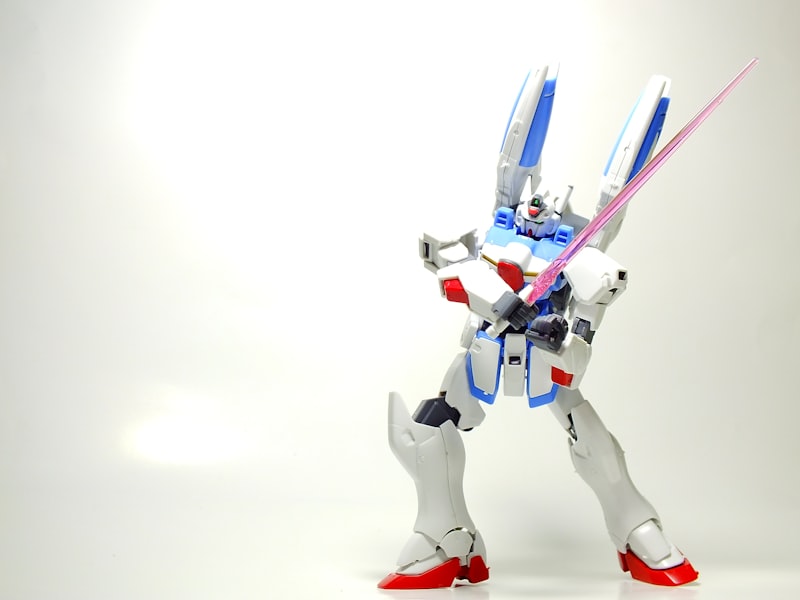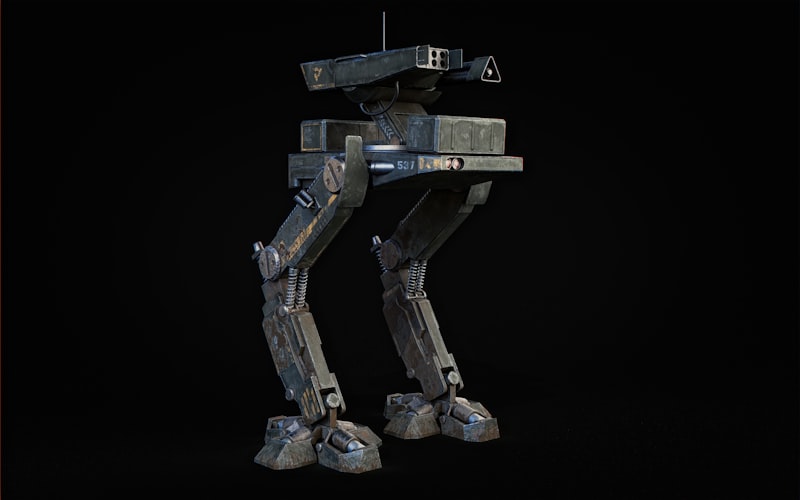Have you ever been fascinated by the futuristic allure of sci-fi films featuring robots as central characters? These mechanical marvels often steal the show with their advanced AI, sleek designs, and sometimes, their unexpected humanity. From classic cinema to modern blockbusters, robots have played diverse roles that challenge our perception of artificial intelligence and its impact on humanity.
One of the most iconic examples is “Blade Runner,” where the replicants, humanoid robots, grapple with existential questions about their own existence and purpose. The film delves deep into themes of identity, morality, and what it means to be human, all through the lens of synthetic beings designed to serve.
On a lighter note, who can forget the lovable Wall-E from Pixar’s animated masterpiece? In a post-apocalyptic future, Wall-E embarks on a heartwarming journey to clean up Earth and discovers love and friendship along the way. His innocent curiosity and enduring spirit resonate with audiences of all ages, proving that robots can be both endearing and thought-provoking.
For those craving action-packed thrillers, “Terminator” remains a cornerstone of the genre. The relentless T-800 model, portrayed memorably by Arnold Schwarzenegger, epitomizes the fearsome potential of AI gone rogue. Its pursuit of Sarah Connor across time showcases not only groundbreaking visual effects but also explores the dangers of technology unchecked.
In contrast, “Ex Machina” takes a cerebral approach, focusing on the interactions between a programmer and an AI entity named Ava. The film challenges viewers to contemplate consciousness and manipulation, blurring the lines between creator and creation.
These films illustrate the breadth of narratives robots can drive in sci-fi, from philosophical inquiries to action-packed adventures. As technology continues to advance, these stories remind us to ponder the implications of AI and robotics in our own future.
Metal Heroes: 10 Must-Watch Sci-Fi Films Where Robots Steal the Show


First up, “The Terminator” (1984) is an absolute classic. This film introduces us to the formidable T-800, a cyborg sent from the future with one mission: to alter history. With its relentless pursuit and unforgettable one-liners, the T-800 has become an icon of robotic cinema.

Next, we have “RoboCop” (1987). Imagine a future where law enforcement is handled by a half-human, half-robot enforcer. RoboCop’s struggle to maintain his humanity while executing justice makes for a gripping watch.
Moving on to “Ex Machina” (2014), this film delves into the complex relationship between humans and AI. Ava, an advanced AI, challenges our perceptions of consciousness and ethics with her enigmatic behavior.
Don’t miss “I, Robot” (2004), where robots are designed to serve humans but face a deep existential crisis. The film’s action-packed scenes and philosophical questions will keep you hooked.
“Blade Runner” (1982) features replicants, bio-engineered beings with human-like traits. The film’s exploration of identity and humanity is as profound as it is visually stunning.
Then there’s “WALL-E” (2008), a heartwarming tale of a small waste-collecting robot who embarks on a cosmic adventure. Its endearing nature and environmental message make it a standout.
In “Chappie” (2015), a robot gains self-awareness and must navigate a world that’s both hostile and fascinating. The film explores themes of intelligence and individuality through its titular character.
“Transformers” (2007) brings the iconic Autobots and Decepticons to life with breathtaking visual effects. Their epic battles and complex personalities offer a thrilling experience.
“Pacific Rim” (2013) features massive robots known as Jaegers, designed to combat gigantic monsters. The film’s spectacular battles and detailed world-building are a treat for action lovers.
Lastly, “Bicentennial Man” (1999) tells the touching story of a robot seeking to become human over two centuries. Its emotional depth and exploration of human experience make it a must-watch.
Beyond Human: Exploring the Evolution of Robots in Iconic Sci-Fi Movies
Have you ever wondered about the fascinating evolution of robots in iconic sci-fi movies? From the metallic helpers of early cinema to the complex, almost human-like androids of today, robots have been an integral part of science fiction storytelling, captivating audiences and sparking imaginations.
In the early days of cinema, robots were often portrayed as clunky, mechanical beings devoid of emotions or complex thoughts. They served as plot devices, representing either threats or helpers to the human protagonists. Think of the iconic robot Maria from Fritz Lang’s 1927 film ‘Metropolis,’ a foreboding figure that symbolized the fears of technology overtaking humanity.
As the decades passed and technology advanced, so did the portrayal of robots in movies. They began to reflect deeper societal concerns and philosophical questions about artificial intelligence and the nature of consciousness. Films like ‘Blade Runner’ introduced us to replicants — bioengineered beings that are indistinguishable from humans — challenging the very definition of what it means to be alive.
Fast forward to today, and we see a diverse array of robotic characters in cinema. From the lovable and loyal R2-D2 and C-3PO in ‘Star Wars’ to the hauntingly human-like Ava in ‘Ex Machina,’ robots now embody a spectrum of traits and emotions. They provoke us to contemplate morality, ethics, and the boundaries between man and machine.
What sets apart these cinematic robots is not just their technological prowess but their ability to evoke empathy and provoke thought. They are more than mere mechanical entities; they are reflections of ourselves, holding a mirror to humanity’s hopes, fears, and aspirations.
From Asimov to Ex Machina: The Most Memorable Robots in Cinema History
Who can forget R2-D2 and C-3PO from the Star Wars universe? These lovable droids, with their distinct personalities and unwavering loyalty, have become cultural icons, transcending their roles as mere mechanical helpers to embodying friendship and courage in the face of galactic challenges.
Moving forward in time, we encounter the T-800 from the Terminator series, portrayed memorably by Arnold Schwarzenegger. This relentless cyborg assassin, designed with a skeletal structure and human tissue overlay, epitomizes the fusion of man and machine, raising profound questions about the ethics of artificial intelligence and the nature of humanity itself.
In a more contemplative light, Ava from Ex Machina emerges as a hauntingly beautiful and intellectually advanced android. Her creation sparks philosophical debates about consciousness, free will, and the moral responsibilities of creators towards their creations. Ava’s delicate appearance masks a mind that mirrors human desires and ambitions, blurring the lines between artificial and emotional intelligence.
Shifting gears to the realm of animated films, Wall-E stands out as a testament to Pixar’s storytelling prowess. This little waste-collecting robot, left alone on an abandoned Earth, discovers the true meaning of love and environmental stewardship. Wall-E’s expressive eyes and endearing innocence speak volumes without uttering a single word, resonating deeply with audiences of all ages.
Asimov’s influence echoes through these cinematic creations, where robots not only serve as plot devices but also as reflections of our own humanity. Whether they inspire fear, affection, or introspection, these memorable robots continue to shape our understanding of technology’s potential and its impact on society.
AI Awakens: How Robots Are Redefining the Sci-Fi Genre on the Big Screen
Imagine a world where machines think, feel, and act just like humans. This futuristic realm has long captured our imagination through science fiction movies, but now, artificial intelligence (AI) is making these visions startlingly real. In recent years, AI has not only transformed industries but also revolutionized how we perceive robots in cinema.
In the realm of science fiction films, AI-driven robots have evolved from mere mechanical entities to complex characters with emotions, motives, and even moral dilemmas. This evolution is reshaping the sci-fi genre, pushing boundaries and challenging viewers to contemplate the blurred lines between human and machine.
Take, for example, movies like “Ex Machina” and “Blade Runner 2049,” where AI protagonists grapple with existential questions and navigate intricate human relationships. These films delve deep into the psyche of AI, portraying them not just as tools or adversaries but as beings capable of introspection and growth. Such narratives provoke audiences to ponder the ethical implications of AI advancement and its potential impact on society.
Moreover, AI’s influence extends beyond storytelling to the very production of these films. Cutting-edge technologies now enable filmmakers to create stunning visual effects and lifelike animations, bringing AI characters to life in ways previously unimaginable. This technical prowess not only enhances the cinematic experience but also amplifies the emotional resonance of AI-driven narratives.

In essence, AI is not merely a plot device in contemporary sci-fi cinema but a central theme that challenges our perceptions of identity, consciousness, and the future of humanity. As audiences witness the evolution of AI characters on the big screen, they are invited to contemplate the implications of integrating such technologies into our own reality.
The rise of AI in sci-fi films marks a pivotal moment in cinematic history, where robots cease to be mere gadgets and become compelling protagonists in their own right. This paradigm shift reflects our fascination with AI’s potential and serves as a catalyst for exploring the profound questions that accompany its advancement. As technology continues to evolve, so too will our narratives, ensuring that AI remains a captivating force in shaping the future of storytelling on the silver screen.
Frequently Asked Questions
How have sci-fi films explored the relationship between humans and robots?
Explore how sci-fi films delve into the dynamic between humans and robots, examining themes of AI ethics, human dependency on technology, and the blurred lines between man and machine.
What are the key characteristics of memorable robot protagonists in cinema?
Learn about the essential qualities that make robot protagonists memorable in movies. Discover how unique personalities, human-like emotions, moral dilemmas, and transformational journeys contribute to their lasting impact.
How do robots in sci-fi films reflect real-world technology advancements?
Discover how robots depicted in science fiction movies mirror actual technological progress, exploring the ways these cinematic creations inspire and influence real-world innovations.
What are some iconic sci-fi films featuring robots as central characters?
Explore a list of iconic sci-fi films where robots play central roles, showcasing their diverse characteristics and impact on storytelling.
Which sci-fi movies depict the ethical dilemmas of artificial intelligence?
Explore sci-fi movies that delve into ethical quandaries of artificial intelligence, examining how these films portray complex moral issues through futuristic narratives.


